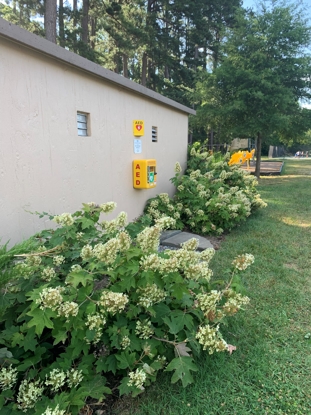Advanced Care Planning During COVID-19
- Category: Community Resources
- Posted On:

As the COVID-19 pandemic continues to spread, make sure your loved ones know your wishes.
FOCUS ON CONTROLLING WHAT YOU CAN.
Help stop the spread of COVID-19 by staying home
Protect your health and the health of those around you. The choices we make today to stop the spread of COVID will help those closest to us tomorrow.
Take care by practicing physical distancing and social connectedness
Focus on reducing physical contact, while maintaining the social and emotional connections that fulfill you. Reach out to friends and family and let them know how much you care about them.
Be prepared
Be prepared in case of becoming seriously ill by following these key steps:
- Pick your person and make it official. Choose a friend, family member, or other trusted person to make medical decisions on your behalf. We can’t control everything, but we can control who will speak for us. Talk to a friend, a family member, or other trusted person about becoming your medical care decision-maker if you can’t make decisions for yourself.
- Make sure the person you choose knows what is important to you first and foremost. Then, the document that person in an official state health care proxy/agent/power of attorney form or an Advance Directive, a term for any written health care instruction that specifies your wishes or names a proxy for you.
- And if given circumstances mean you can’t make it official make sure the person you choose knows what is important to you and your preferences for the amount and types of treatments you would want to receive.
- Talk about it. What do you need the person who would make medical decisions for you to know about what matters to you, so they could speak up for you if you can’t? We can’t plan for everything. But we can help manage life’s unknowns by talking openly about what matters to us and what we’d want most if we became seriously ill with coronavirus disease.
Conversations about things we can’t control can help to give us a sense of control. We may not be able to predict every choice we’ll have to make, but we can give those we love the guiding principles to confidently make decisions for us. If we don’t say it, they won’t know.
Our caregivers may need to make decisions for us, whether we’ve told them what we want or not. We can’t simply assume they know. Open conversations can pave the way to clarity, provide comfort and bring people together. - Stay informed on how your local health department is responding to COVID-19. Check the websites of your local and state departments of public health for updated information on guidelines and procedures.
- Know where your loved ones stand. There may be a time when we will need to help the people closest to us—our friends, our spouses, our parents, or grandparents—get medical care if they become seriously ill with COVID. This means understanding what is important to them so we can speak on their behalf if they can’t.
Helpful links:
Source:



